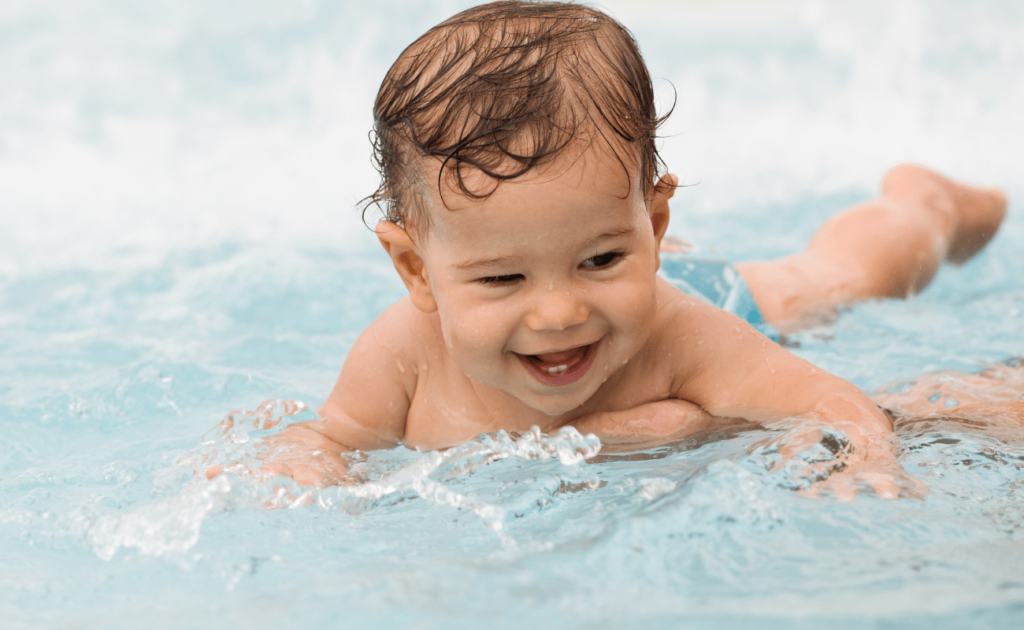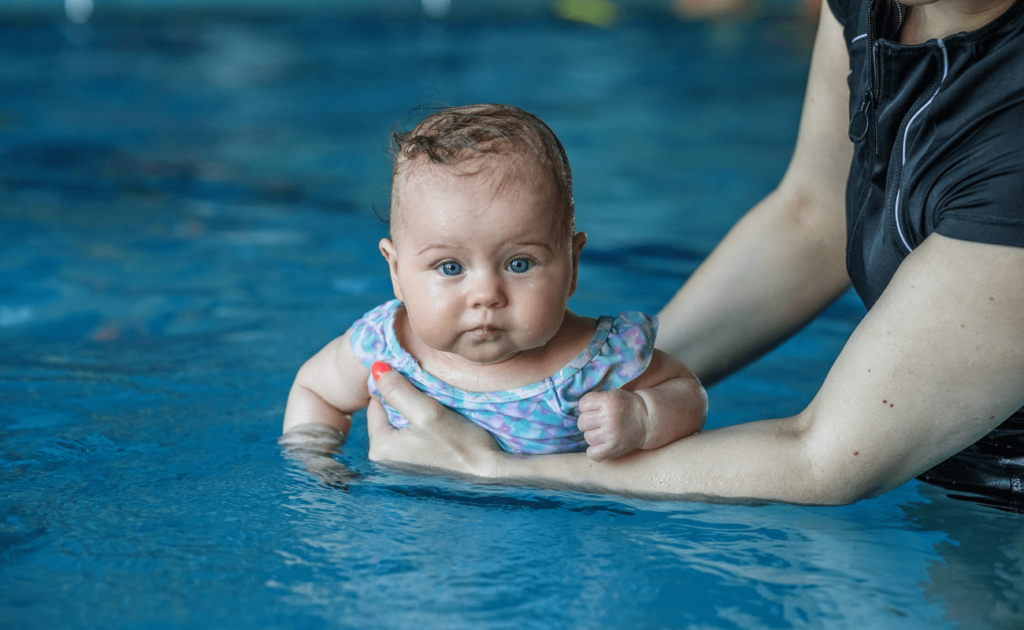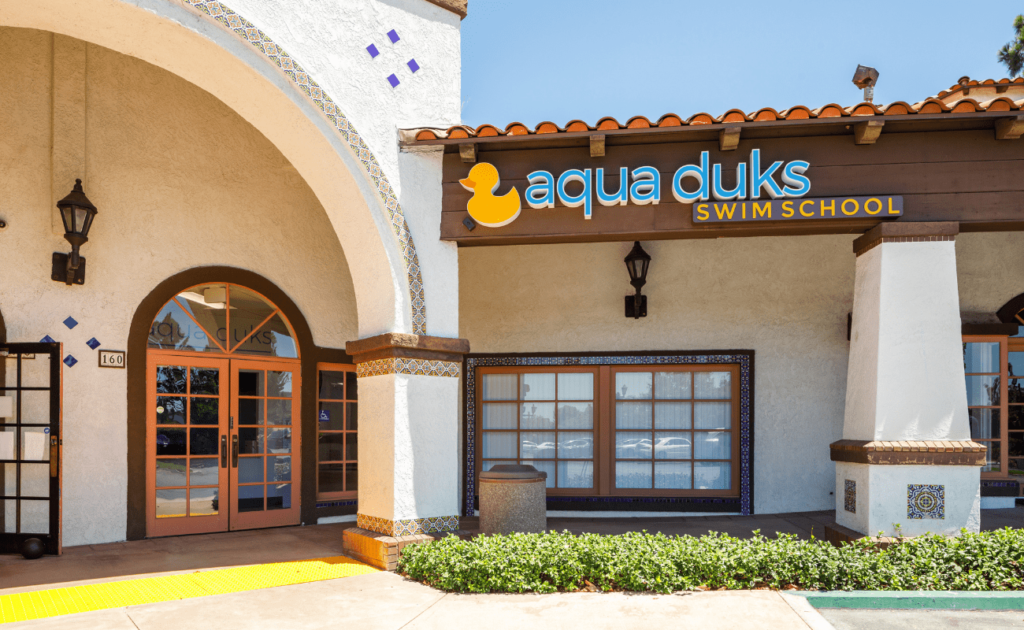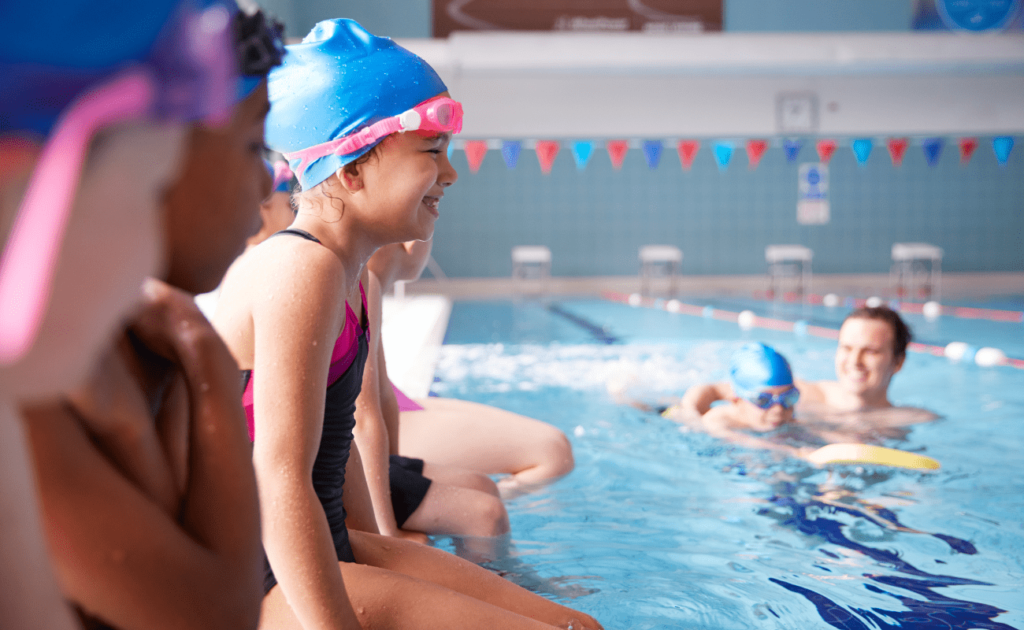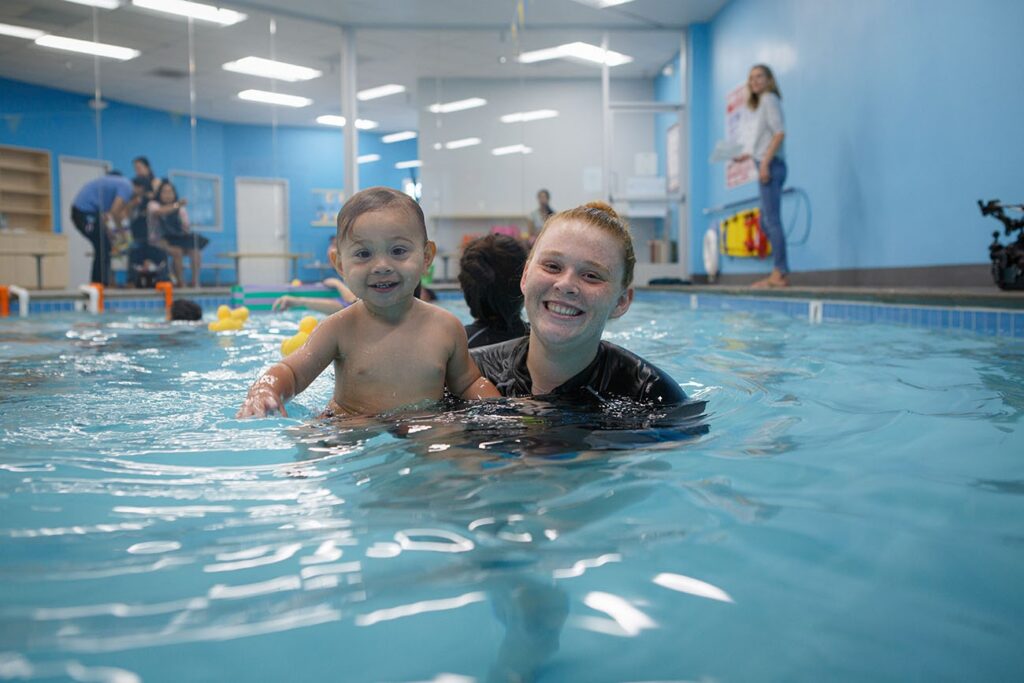(Note: This is part three in an interview with swim expert Rob McKay about gentle swimming programs for young children.)
How else can parents keep their little ones safe around water? What are the most important tools in your opinion?
There is no greater place than the family pool. However, as water holds endless fascination for toddlers, you must take every precaution to prevent your child from entering the pool without you. Small children lack the cognitive ability to discern danger. It is the adult’s responsibility to protect these curious and impulsive explorers from entering any body of water unsupervised.
Fortunately, many proactive strategies do exist providing multiple layers of protection to help minimize the risk of a child “accidentally” falling into the family pool or any body of water. Supervision, combined with barriers (including double door locks, door alarms, pool alarms and perimeter yard fencing), pool safety fencing, gentle swimming lessons and CPR/water safety awareness can help keep our children safe.
Anything else you’d like to add?
The baby swimming experience should be a memorable family bonding experience. The benefits are numerous.
Water is a forgiving healer, its caressing and stimulating effect on children with special needs is most remarkable. Its buoyancy is like an invisible helping hand.
Researchers have documented that the stimulating effect of child-paced infant/toddler swimming lessons has the potential to increase intelligence, concentration, alertness, and perceptual abilities. Improvement in social, emotional and physical development has also been published.
Of course, the manifestation of such inspired cognitive, personal and motor development takes time, patience and repetition.
I have personally observed this phenomena and have confirmed this with other veteran instructors, especially in children who started lessons prior to 12 months old, but it’s never too late to receive these unique and subtle benefits of infant-toddler swimming. These babies eventually become extremely peaceful and relaxed in the water.
Water is a forgiving healer, its caressing and stimulating effect on children with special needs is most remarkable. Its buoyancy is like an invisible helping hand. Zero gravity allows for freedoms that do not exist on the dry land. Optimal learning conditions, combined with kindness and patience can even release a withdrawn or hurting child from their shell.
Also, over the years, we have discovered that autistic infants, babies, toddlers and tykes and their parents find the nurturing swimming experience to be an engaging, calming and positive tactile environment for developing, interacting and growing together. Much as “floor time” works for children on the autistic spectrum (ASD), so too, early swim lessons taught with toys, games, songs, motion and verbal communication can help stimulate learning interactions.
In what other medium are you able to bond face to face, skin to skin and share the joy of learning together?
It’s a special time, a special place for you and your child.
Early swim lessons set a positive foundation towards a lifetime of participation and enjoyment in a variety of water sports and aquatic venues on, in and under the water.
Each class is an interactive recreational activity in a new and exciting liquid environment. “Go Pool” are often among the first words spoken by young “Diaper Dolphins.” Swimming imports great joy into the lives of infants and toddlers. It also fashions healthier and stronger individuals.
This is often a child’s first social experience out of the home that involves their peers. They learn to relate and interact with each other and look forward to seeing their class mates. Caring and patient moms and dads of young children have an ideal opportunity to meet like minded people who share common interests.
For the right people, in the right situation, baby swimming can nurture a connectedness to family, community and to the outer world.
Safety skills are a primary reason why many people initially enroll in lessons. But, as you now know there is much more to infant/toddler swimming than merely one aspect. However, with the acquisition of safety skills not only is early swimming life enhancing, it can be lifesaving.
The younger a child can begin their swimming adventure the sooner they will be able to build a foundation for the eventual ability to perform age appropriate safety skills (never imposing techniques on a child against their will or with the use of force). We must note that it is always the parents’ responsibility to ensure the safety of their children.
Many students can swim before they can walk. As, their swimming progresses you will witness improved coordination, strength, endurance and lung capacity.
The smooth and fluid exercise in the water results in healthier naps following class. Parents attending the evening classes have noted improved sleeping patterns throughout the night.
Early swimming fosters a growing sense of self-esteem, confidence and independence. As a child’s ability to freely move through the water increases so does their sense of well-being. Eventually, for those families who persevere, a point is reached where their child truly feels at home in the water and becomes a Diaper Dolphin.
Take it slow, have fun, enjoy the journey, go the distance– the payoff is for life.
The Benefits of Gentle Baby Swimming Programs
Alicia Bayer, Mankato Attachment Parenting Examiner – July 22, 2010
(Note: This is part three in an interview with swim expert Rob McKay about gentle swimming programs for young children.)
